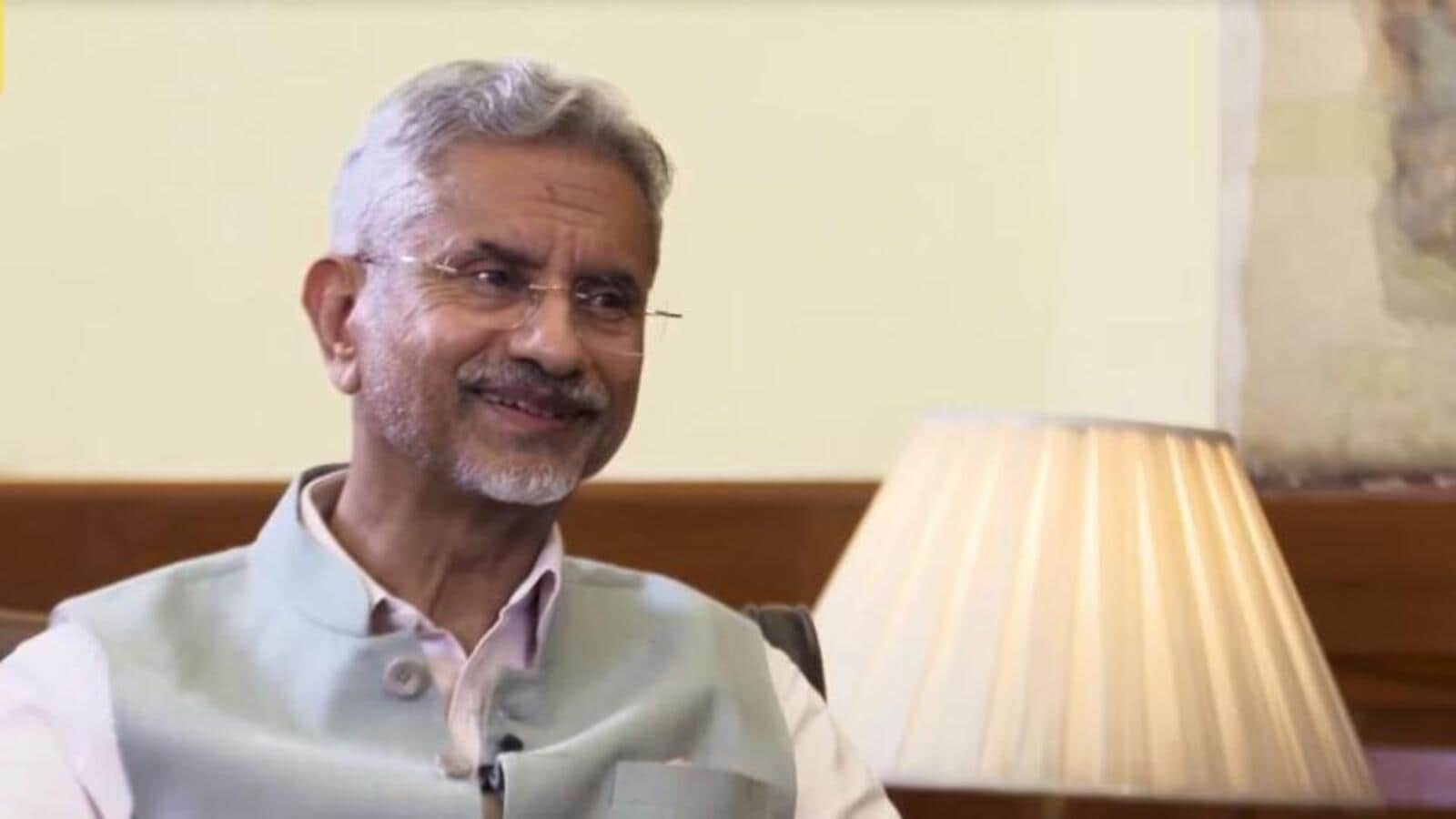External affairs minister S Jaishankar on Thursday said it’ll be “ unseasonable ” to speak of India acting as a facilitator to broker peace between Russia and Ukraine, and countries impacted by the conflict can only hope to nudge the main players in a positive direction.Jaishankar also advised that India will have to get its act together to manage with an “ uncertain, changeable, unpredictable, turbulent ” world and a decade with a “ far more fluid transnational situation ”, including “ conflicts and conceivably worse ”.
Though some underpinning issues in the military standoff with China on the Line of factual Control( LAC) have been worked out, Jaishankar reiterated that the overall bilateral relationship can not be normalised till there’s peace and tranquillity in the border areas, observance of agreements and “ no unilateralattempt.to change status quo ”.
Against the background of increased enterprise about a possible part for India in interceding between Russia and Ukraine, Jaishankar responded to a question on the issue by describing it as “ unseasonable ”. In a way, we aren’t looking, we can not approach moment’s problems with models or gests this is a veritably, veritably different situation in which we’re in moment, ” he said in a discussion with HT’s editor- in- chief R Sukumar at the 20th Hindustan Times Leadership Summit.
The enterprise had increased ahead of Jaishankar’s visit to Russia during November 7- 8, when he met his counterpart Sergey Lavrov and other Russian leaders for conversations on expanding profitable ties, including energy inventories.
Countries that believe this is “ not an period of war ”, as was refocused out by Prime Minister Narendra Modi to Russian President Vladimir Putin during a bilateral meeting in Uzbekistan in September, and that issues can not be settled on the battleground and there’s a need for players to get back to the negotiating table, can “ articulate their enterprises and try to shape the thinking of those more directly involved in a positive direction ”, Jaishankar said.
I suppose beyond that, to suggest anything differently, I do n’t suppose is justified at this point of time, ” he addeJaishankar said the global order and globalisation model have been “ more and more challengedsince the transnational fiscal extremity of 2008, and the Covid- 19 epidemic “ brought out into the open a lot of the problems which till also had been kept forcefully under the carpet ”. Supply chains were veritably fragile, product was exorbitantly concentrated and people were dependent on limited topographies, he said.
The Ukraine conflict added to stress factors and “ fragility can be enhanced by terrorist conduct ” or indeed the climate extremity. “ Overall, I would say( in the) short to medium term, I would be looking at a veritably unsettled world, at a lot of turbulence and volatility. I suppose this is a time when we honestly need leadership, experience, capability to guide this nation in rough swell. Believe me, the rough swell — you can formerly feel the swells, ” he said.
Jaishankar added, “ You’re going to have really maybe for this decade, a far more fluid transnational situation where there will be ebbs and flows, and combinations and issues and conflicts and conceivably worse, which is what we’ve seen. I don’t see a settling down among major players in the near term. ”
India needs to “ get our act together ” for an “ uncertain, changeable, unpredictable, turbulent ” world, he advised. “ And a large part of getting our act together is doing the right effects at home, erecting up the strengths at home, doing the governance, the delivery, the creation of capabilities and means, ” he said.At this time, it’s particularly vital that we find our bases and we stay strong because there’s this. sense of a long period of global query before us. ”
Responding to a question in the standoff with China that began in May 2020, Jaishankar said that “ unless there’s peace and tranquillity in the border areas, unless there’s observance of agreements and no unilateral attempt made to change status quo, the relationship can not be normal and isn’t normal ”.
The events of 2020 on the LAC were “ an attempt by one party, and we know which bonto depart from agreements and understandings and that’s at the heart of the issue ”. Since also, the two sides have made progress in some felicitations. “ fairly speaking, there were multiple disunion points. In those disunion points, there was dangerously close up deployments by the service. I suppose some of those issues have been worked out keeping in mind equal and collective security, ” he said.
But there are some which still need to be worked upon. It’s important to persist and to keep pushing. Because it’s tough or it’s complicated, you do n’t say, well that’s not going to be. I do authentically believe that there will be, there should be a realisation that the present state of relations isn’t indeed in China’s own interest. ”
India is doing a lot of effects in terms of programs and pronouncements, and there’s no nebulosity about the country’s signalling and messaging, he said. “ They( China) will weigh it from their interests and where they’re purely. it is n’t just a matter of public sentiment, and public sentiment is strong. I don’t suppose that the current state can continue without damage to the relationship, ” he added.
Jaishankar described the US as one of India’s star mates moment in the political, military and profitable spheres. “ I can not overdo the significance of this relationship. My sense of what has changed in the last many times is that the two countries are looking at the relationship and also examining and strategising how it applies to a world in metamorphosis, ” he said.
The term “ ocean change ” to describe the metamorphosis in relations with the US “ would be a gross understatement ”, and the position of contact, comfort, openness and capability to work together are remarkable, he said.
Though there were literal reasons for a mistrust of the West, India’s contemporary interests are served well by working nearly with Western countries, Jaishankar said. India’s standing as a popular society with a pluralistic morality and its request frugality bring it closer to the West, and “ that computation moment is recompensed by the West ”, he added.
He said “ Our understanding within the government isn’t different from the prospects of the public. My sense is that the people of the country want a neighbourly relationship with Pakistan but they want a good neighbourly relationship, and good neighbours do n’t do terrorism. I suppose it’s as simple as that. ”

